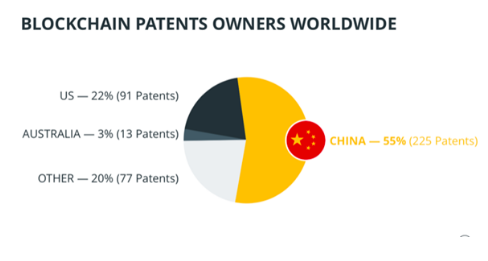 There has been a considerable number of patents being issued by companies on a global basis for applications using Blockchain technology, recently including Accenture, IBM and Thomson Reuters.
There has been a considerable number of patents being issued by companies on a global basis for applications using Blockchain technology, recently including Accenture, IBM and Thomson Reuters. Accenture has filed in the US, a Blockchain patent around the interoperability of Blockchains, which a key concern for corporations as they do not want to be ‘locked-in’ using a Blockchain that will not interact with other Blockchains.
IBM’s patent involves the use of data and Blockchain technology for self-driving cars to asses nearby drivers’ behaviour. Collecting data from a variety of different sensors and then calculating the most - likely maneuvers of nearby vehicles/drivers.
Thomson Reuters patent, which is filed in the USA, is around storing identity-related data securely on a ‘token‘ on a Blockchain.
One of the reasons companies register patents is to have evidence that they own Intellectual Property (IP) and so increase the intangible assets they possess. It is then possible, depending on where the company is based, to enjoy significant tax advantages. Depending on which country a firm files a patent, it is possible to claim tax relief going back for up to TWO years on most of the expenses relating to the creation of the patent, and associated research and development costs. This is significant, as even for small start-up companies it may be possible to offset not just corporation tax, but VAT and employment taxes such as National Insurance.
The chart shows the dominance of China in terms of Blockchain patents. One of the reasons for applying for a patent in China is that the income derived from an activity that has a patent enjoys a lower potential tax as the burden is reduced from 25% to 15%. Source: Coin Telegraph.
However, while The Chinese government is desperately keen to be an IT powerhouse, a significant % of the patents that are filed in China do not get granted. In 2017, China filed over 1.3million patents, which was an increase of over 600% from the 204.00 in 2008. To offer some context there were 525,00 patents filed in the USA in 2017, which was an increase of 20% from the 429,000 filed in 2007. However, of the 1.2 million Chinese applications only 26% were actually granted, while in the US over 50% of applications applied for, were successfully granted.
Companies globally are often valued on their intangible assets, such as their Intellectual property and brand value, so having a number of patents helps when they look to raise capital, or when they come to sell the business. This, coupled with generous tax breaks, may help explain the rise in patent applications around the world, although if you wanted to be cynical, patents are being sorted to gain some control over Blockchain technology for the future!


